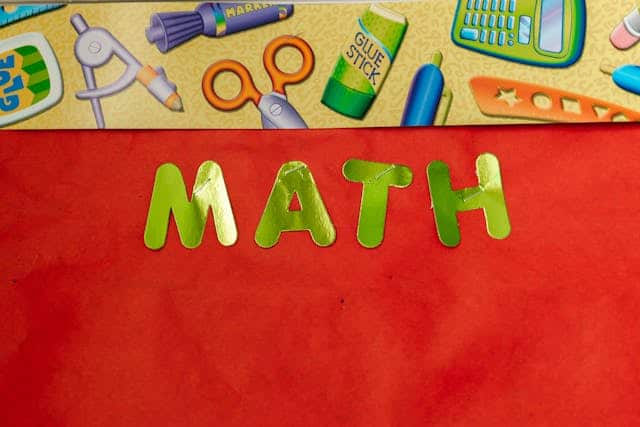
Can deliberate practice improve consulting? Yes, but what is it and what consulting skills can it enhance? Here’s an approach you can use!
Table of contents
Talent versus practice

Years ago, I spied an intriguing book title: “Talent Is Overrated” by Geoff Colvin. It opened a whole new world to me. Early in the book, he raised an important question. Why do most people become fairly good at what they do, but so few become world class? He addressed what we have learned from research on performance and expertise. Then he made suggestions for applying this to improve in business as leaders, individuals, and team members, and in life.
Colvin mentioned the work of K. Anders Ericsson who made a profound contribution to science of expertise in the field of psychology. Ericsson put forward the notion that talent is not inborn. In fact, he reviewed the research literature on talent and could not find convincing evidence that people inherit it. Until reading this, I was convinced that we inherit talent and if you have talent and use it in your chosen area, you would go far.
Does the amount of practice explain level of performance?
Ericsson’s view was that hours of deliberate practice explain performance and expertise. I downloaded one of the original articles Ericsson had written. In it he describes musicians and how the ranking of their talent was related to the sheer number of hours of practice.
What is deliberate practice?
“Success has to do with deliberate practice. Practice must be focused, determined, and in an environment where there’s feedback.”
Malcolm Gladwell
According to Ericsson, deliberate practice:
- Develops known skills for which effective training methods already exist.
- Occurs outside of your comfort zone, and is constantly a little beyond current abilities. It’s not enjoyable.
- Uses specific, well-defined goals to improve a part of the target performance rather than aiming for general improvement.
- Is deliberate and requires full attention and “conscious actions.”
- Uses feedback and you change your efforts based on feedback.
- Results in and depends on effective mental representations that make it possible to see how you are doing.
- Almost always specifically improves or changes previously acquired skills.
Can you become an expert in ten thousand hours?

Based partly on Ericsson’s work, Malcolm Gladwell in his book, Outliers, popularized the idea that 10,000 hours of practice is necessary to become an expert.
In Ericsson’s book, Peak, he has a section called, “NO, THE TEN THOUSAND-HOUR RULE ISN’T REALLY A RULE.” The point is not just the number of hours of practice, but the quality. It also depends on the field.
Ericsson explained:
- 10 thousand hours have no magical significance.
- Ericsson’s study of violin players on which Gladwell’s rule was based did not all practice 10,000 hours; it was just an average. The students were promising but had not yet become masters of performance. Ericsson also points out that pianists who win international competitions often do so when they are about 30 years old and have practiced for 20 to 25 thousand hours.
- Gladwell did not distinguish between deliberate practice and other activities that might be considered practice. The amount of practice Gladwell attributed to the Beatles, because they performed so long and frequently, was not necessarily deliberate practice. Mark Lewisohn in a biography of the Beatles estimated that they played, not for 10,000 hours, but for only 1100 hours. Lewisjohn also indicated that the success of the Beatles was not how well they performed but because of the efforts of their two major songwriters, John Lennon and Paul McCartney.
Ericsson does acknowledge that Gladwell was partly correct. In areas known for people successfully working to become experts, it will take a great deal of effort over many years to become an expert.
What skills do you need to practice to improve your consulting?

Your must-have skills will reflect your area of consulting.
If you are in management consulting, you should have good management skills.
Scientific advisors require different skills, such as quantitative and analytic skills. Here are important skills for most areas of consulting.
Communication skills
Excellent writing

In Benjamin Franklin’s autobiography is an example of an oft referenced way to improve writing:
He found a volume of the Spectator. He wrote: “It was the third. I had never before seen any of them. I bought it, read it over and over, and was much delighted with it. I thought the writing excellent, and wished, if possible, to imitate it. “
How did Franklin improve his writing?
He wrote short hints about each sentence, set them aside for few days. Then, without looking at the article, he tried to reproduce what he had read, by writing each of the hints as fully as the original.
Then he compared his version with the original, found what was inadequate or missing, and corrected it. He noticed that he needed to expand his vocabulary and fluency in findings words. “But I found I wanted a stock of words, or a readiness in recollecting.”
He decided to put the Spectator articles into verse. After a while, when he had time to forget the prose, he tried to write the verse in the original words.
To teach himself how to best arrange his thoughts, he mixed his collections of hints so they were completely out of order. Then after some weeks he tried to put them back in the original sequence before he wrote them in complete sentences. Then he compared his sentences with the original. He tried to put forward better arguments than the original.
Benjamin Franklin fit this into a very busy schedule.
You can see that he enhanced his skill in increasingly difficult steps. He did not try to globally improve, but worked on specific goals.
How can you improve your writing?
You could try Franklin’s method. Apps such as Grammarly and Hemingway can help to improve your writing, too.
Franklin went beyond improving his grammar and clarity of sentences. He also worked on improving the order in which he expressed his thoughts. Franklin practiced to make his version of the articles better than the original material he found in a well-regarded publication of his time, the Spectator.
Engaging presentations

Consultants present their proposals, plans, findings, and recommendations to clients. They may lead training efforts.
It is well worthwhile to visit Nancy Duarte the website of a foremost, authoritative, leader in how to produce and conduct presentations. She emphasizes the importance of telling a story, and getting away from slides that your audience reads. Duarte shows how to produce interesting slides that focus on the essential messages you are trying to impart.
How can you improve your presentations?
Visit Nancy Duarte’s website and read her books.
Also, consider that in live presentations, how you stand and move can have an important effect.
Get friendly feedback to identify your own areas for improvement and apply the principles of deliberate practice to specific techniques one at a time. Measure your performance for those specific areas.
More on improving communication
Forbes magazine has an article recommending three TED talks for improving communication. They address ways to have better conversations, Nancy Duarte’s Secret Structure of Great Talks, and Brene Brown’s talk on vulnerability.
Interpersonal skills
Interpersonal skills include empathy, kindness, assertiveness and communicating well with others, and are important in:
- negotiation
- conflict resolution
- dealing with difficult people
- working with teams
- and in many other circumstances.
See these articles on interpersonal skills on the Science of People website. Here is another resource on interpersonal skills, which are part of soft skills and distinct from technical skills that are more often cited in resumes.
How to improve your interpersonal skills
This is a big topic and my suggestion is to read about or take courses, such as those on:
- interpersonal skills
- the practicing of specific skills
- moving a bit beyond your comfort zone
- getting feedback
- and generally applying the principles of deliberate practice.
If you take courses, you might consider those at Science of People.
Teamwork

Articles abound on the topic of how to improve the performance of teams. I attended many “team building” exercises, whilst working in the pharmaceutical industry. They were not helpful. The teams were outstanding, and the exercises made no difference.
So, can anything improve the function of teams?
In an article, 22 innovative ways to improve teamwork in the workplace, their second point, “Avoid cringe-worthy team-building exercises” really resonated with me. The article on the Blink website addressed the importance of clear goals and team roles, communication, giving autonomy to teams, and ways to increase engagement of team members.
An excellent and intriguing article in the Harvard Business Review, The New Science of Building Great Teams by Alex “Sandy” Pentland presents evidence for what can enhance the functioning of teams. While this article was published in April 2012, it provides data on what very effective teams do and shows a way to improve teams.
All team members in their study wore electronic badges “that collected data on their individual communication behavior—tone of voice, body language, whom they talked to and how much.” The badges also recorded whether they faced each other, the extent of gesturing, and the extent to which they talked, listened, and interrupted.
Communication was the most important predictor of the success of the teams. In fact, it was more important than their skills, intelligence or even what the people on the team discussed. What were the best predictors of productivity? They were a team’s energy and their engagement outside of official team meetings.
The defining characteristics of productive teams
According to Pentland, they are:
“1. Everyone on the team talks and listens in roughly equal measure, keeping contributions short and sweet.
2. Members face one another, and their conversations and gestures are energetic.
3. Members connect directly with one another—not just with the team leader.
4. Members carry on back-channel or side conversations within the team.
5. Members periodically break, go exploring outside the team, and bring information back.”
The three most important most important features of communication
- Energy, measured by the number and type of communications – Face-to-face communication was best, followed by video and telephone interactions. Email communication was not as effective. Too many people on a video or telephone meeting decreased energy.
- Engagement (average amount of energy between team members).
- Exploration (interactions outside of the team). Socializing contributed strongly to better team functioning.
The ideal team members
Pentland referred to them “charismatic connectors.” They moved to engage people in brief, high-energy conversations. They interacted equally with all team members and made sure that they had the opportunity to contribute. They listened at least as much as they spoke and were typically very engaged.
The research continues.
How can you improve the functioning on teams for yourself or others?
Give teams recognition and autonomy.
Make sure that team goals, roles and responsibilities are clear.
Help to increase communication within teams and across an organization.
Apply the lessons learned above about the defining characteristics of productive teams. Use them to help increase your own and team member engagement.
Face-to-face contact is one of the most important factors for productive teams, but was severely hampered during the COVID pandemic. From this difficult time, we learned a lot about the advantages and downside of video communication. For one thing, when in video or phone meetings make sure that everyone is asked for their input.
It is better to call or meet with an individual team member to address a complex issue rather than sending endless streams of emails.
Like Benjamin Franklin, you can take each of the factors that improve team engagement and find ways to practice them and measure your performance.
Quantitative skills

Quantitative skills include the ability to use numerical, mathematical, and statistical approaches, as well as producing data tables and graphs and interpreting them.
How to improve your quantitative skills
You can practice mental arithmetic, update your mathematical skills, and take courses in statistics, data management, finance, and any other quantitative areas that are useful to you.
Analytical skills
Analytical in this context refers to studying the constituent parts and their interrelationships in making up the whole of what you are addressing. In some circumstances, analytical skills may involve quantitative skills.
Analytical skills are important in problem solving. These involve research, and sometimes creative approaches. What are the component parts? For example, if quantitative approaches are used, what are the important data variables, and how are they related?
How to improve your analytical skills
The analytical skills you need will depend on your area.
Problem solving skills
Often clients will reach out to consultants, because they have a problem. A consultant may be a solution to their problem simply because they need a body to do the work, or they don’t have your sort of expertise in house. They figured out the problem themselves, and you are their solution!
Clients may have problems that they can’t solve and may not know where to start. They want you to solve them and then they will move forward using your solutions.
How to improve your problem solving skills
Find examples of how people solved similar problems or learned how to solve problems.
Project management skills
At the very least you will have to manage whatever work you are doing for your clients.
If your work requires project management, consider joining the Project Management Institute or doing courses.
You could also learn how to use project management software , including Microsoft Project, Zoho Projects, and Basecamp. Many tools are available for project management.
How to improve your project management
The best way in my opinion is to take courses on project management and learn how to use the common apps. Learning how to track project milestones, establish and follow budgets, and all the components of project management will require a substantial time commitment.
Preparing consulting proposals
Most consultants will need to develop proposals for their prospective clients.
You can use a standard proposal format:
- Greet your client
- Overview or Summary
- Scope of the Project
- Deliverables
- Timeline
- Fees (Investment might be a better heading).
Here is more on how to write a consulting proposal.
You will need to sign the proposal document, which could be done electronically, with DocuSign or other apps.
You could also take it step further and use a dedicated service for generating proposals, signing them, and following sales online, such as Better Proposals.
Before putting together a proposal, reach out to your prospective client to explore their specific needs and ask lots of questions to clarify the scope of the work.
Do clients come to you for consulting by word of mouth? For example, you are a well-known expert who is sought for your advice or you have an outstanding reputation for your work. Then you may not need a proposal. The scope of work that you would perform would go into your contract.
How to prepare better proposals
Get feedback from your clients and others. Focus on improving each component of the proposal at a time. If a proposal does not succeed, try to find out why.
Conclusion:
We have looked at what deliberate practice is and how you can apply it toward developing better skills. Also, we have addressed a substantial list of skills you need to practice to improve your consulting, including communication, teamwork, interpersonal, quantitative, analytical, and problem solving skills. In addition, we have looked at how to produce better proposals.
Clearly, improvement using deliberate practice takes time and effort. Attending courses is also time consuming. Therefore, it is crucial to focus on the most essential skills in your area first.
Please share your thoughts!
You may be interested in:
Mentors Can Help You Start and Grow Your Consulting Business
Consulting: Will Clients Take Your Advice?
Planning to move to consulting: See Getting Started
As an Amazon Associate I earn from qualifying purchases.
Deliberate PracticeTalent Is Overrated Colvin
Nancy Duarte’s books on presentations
